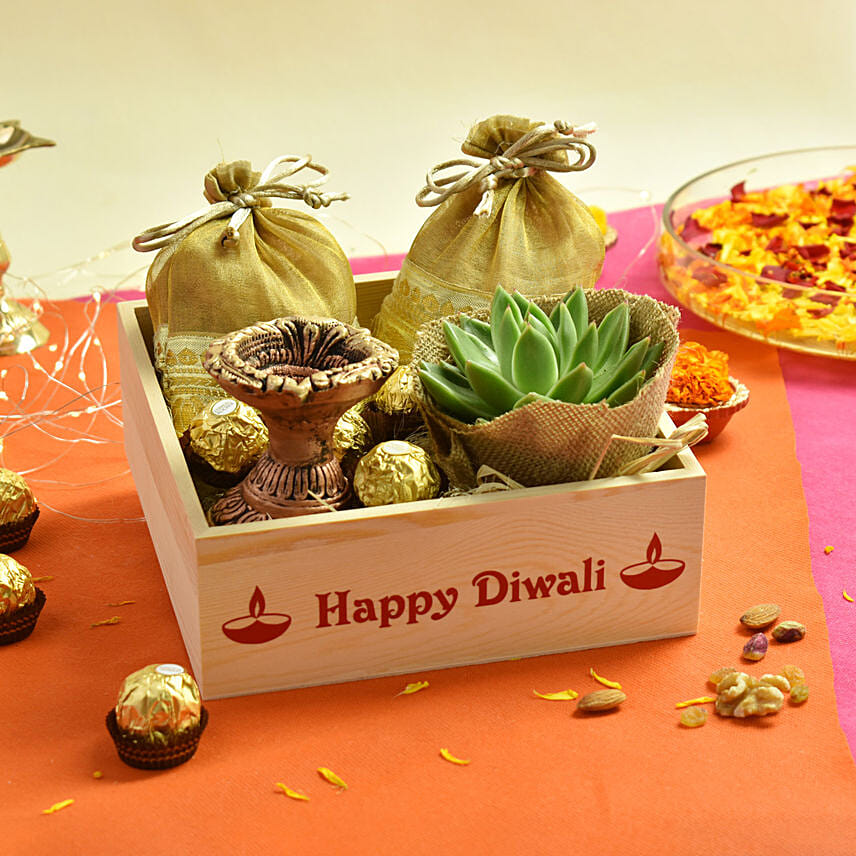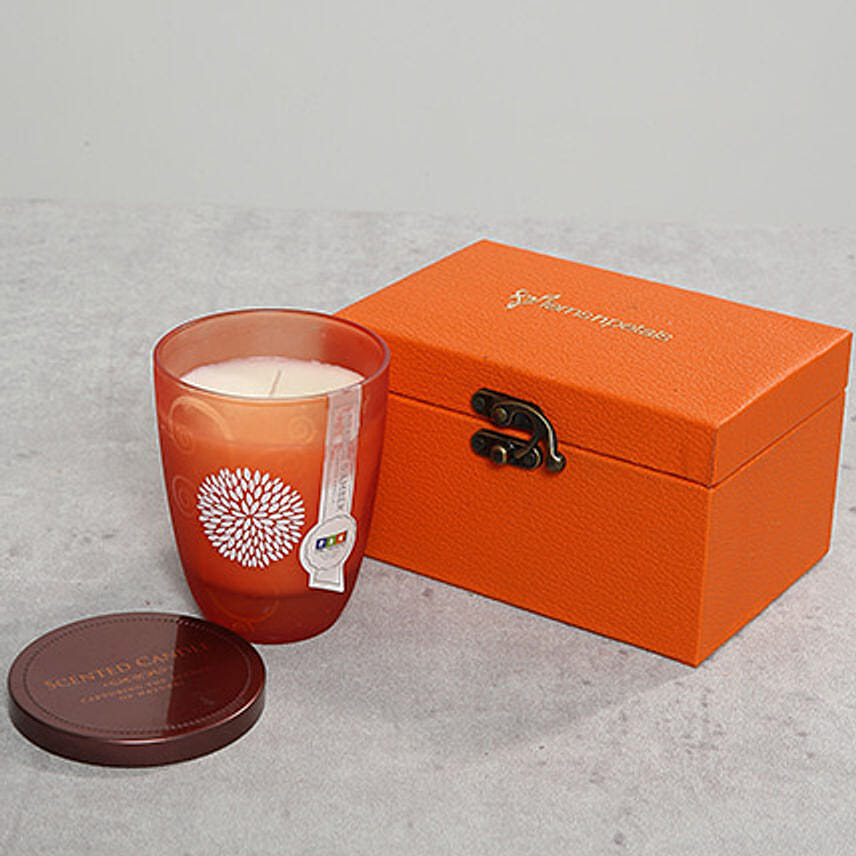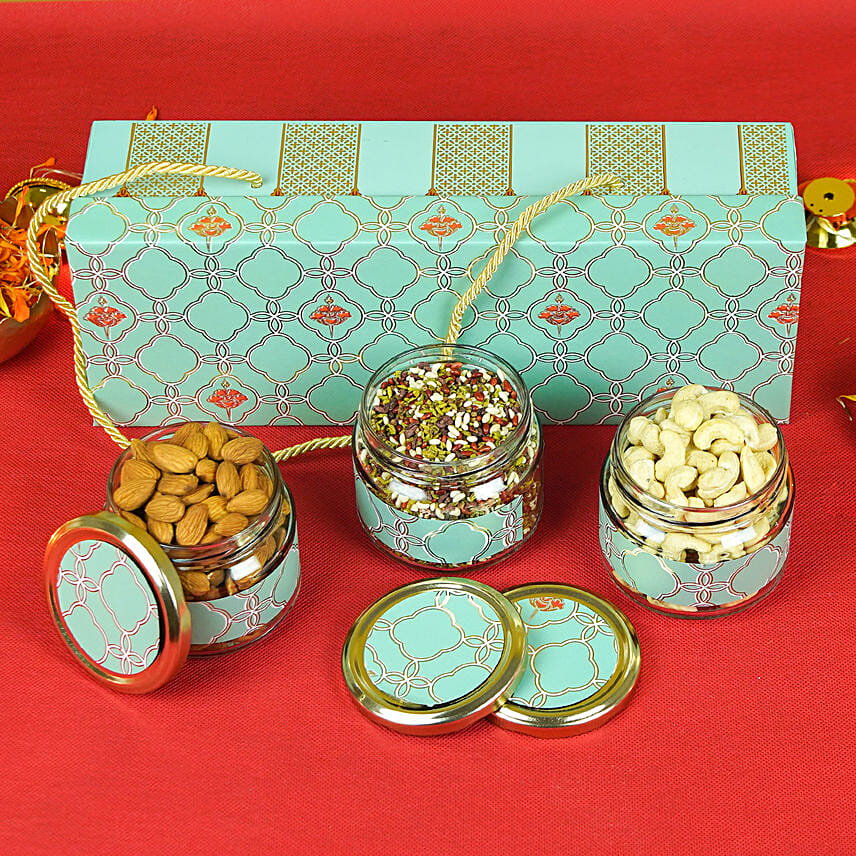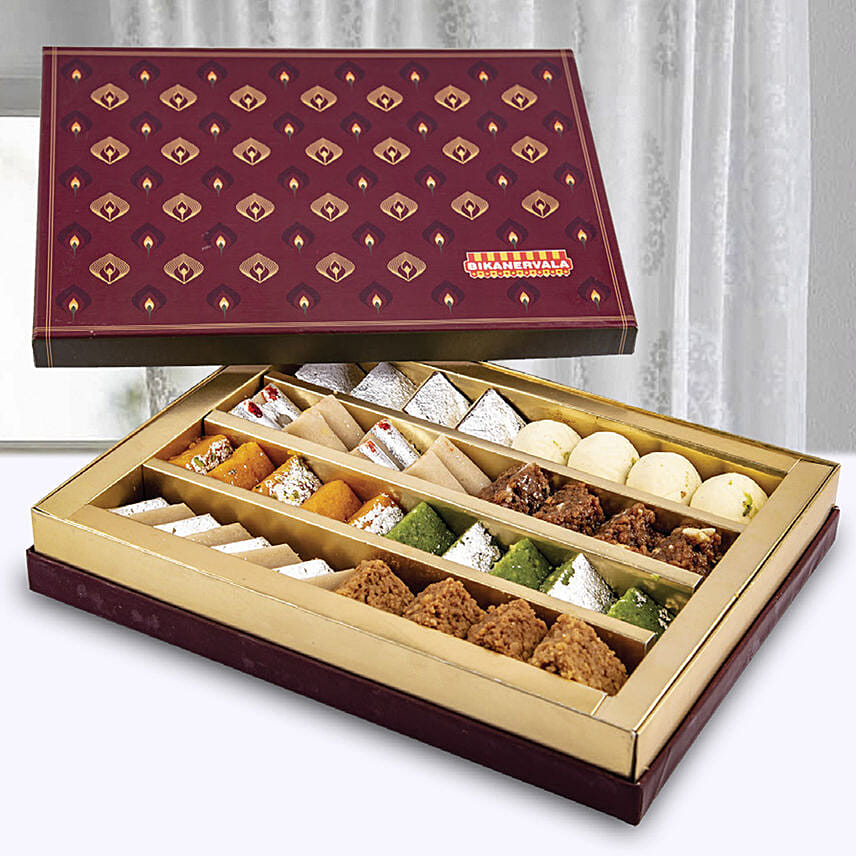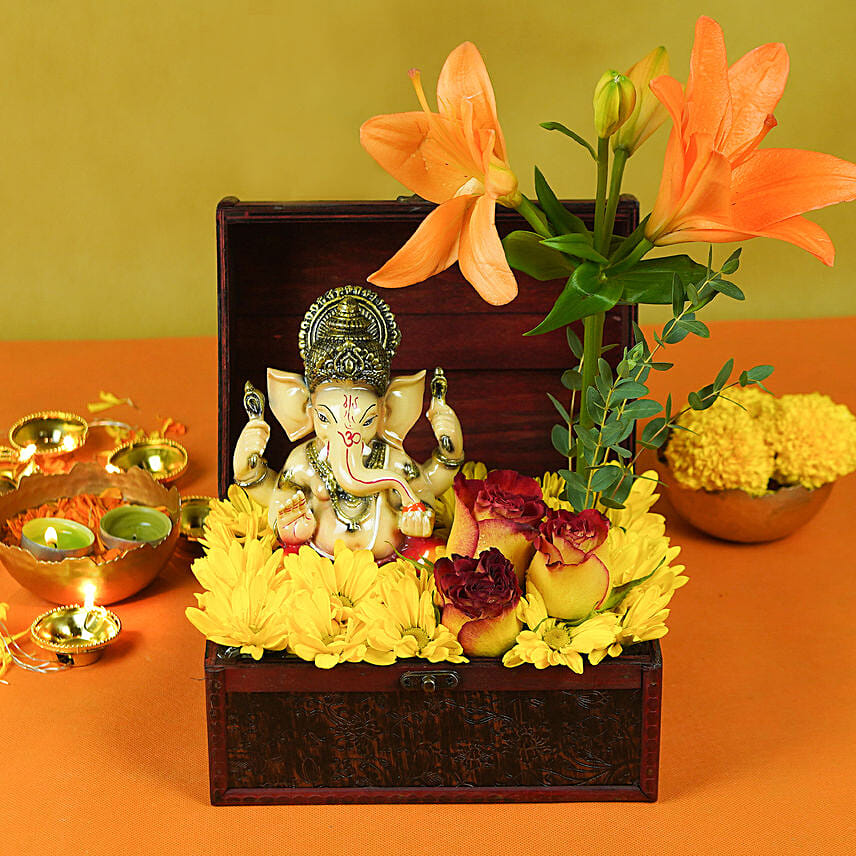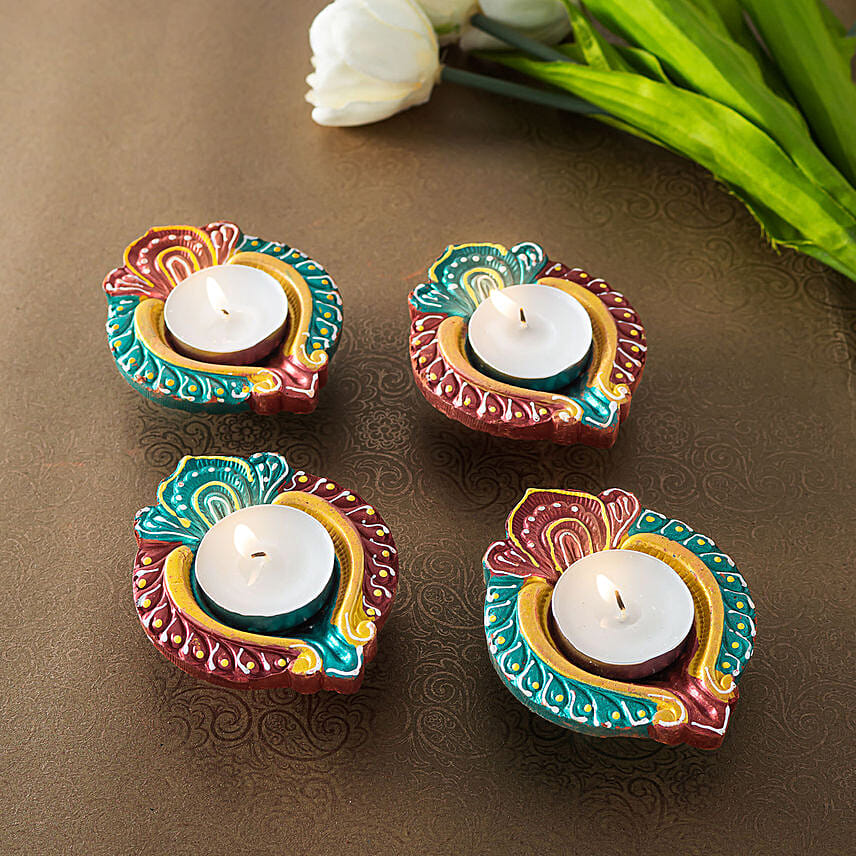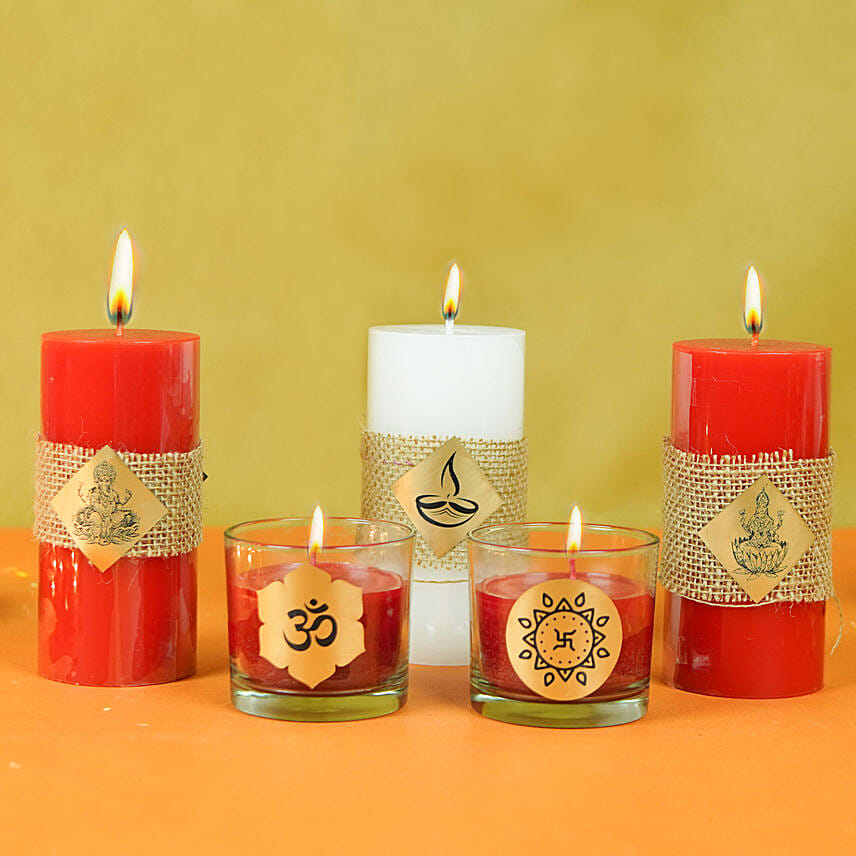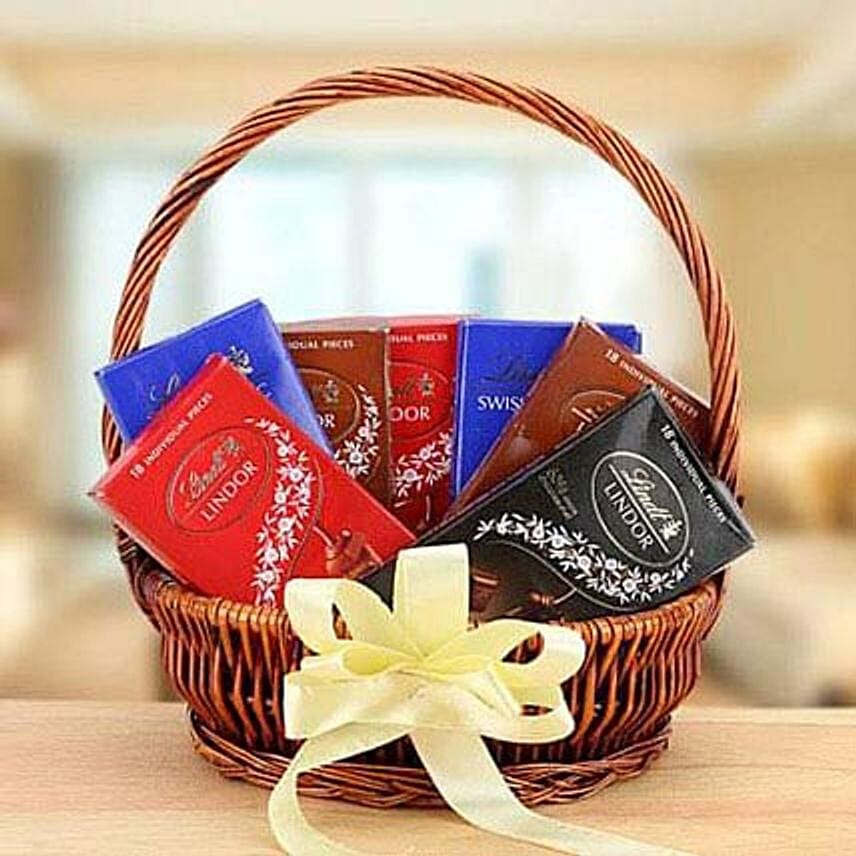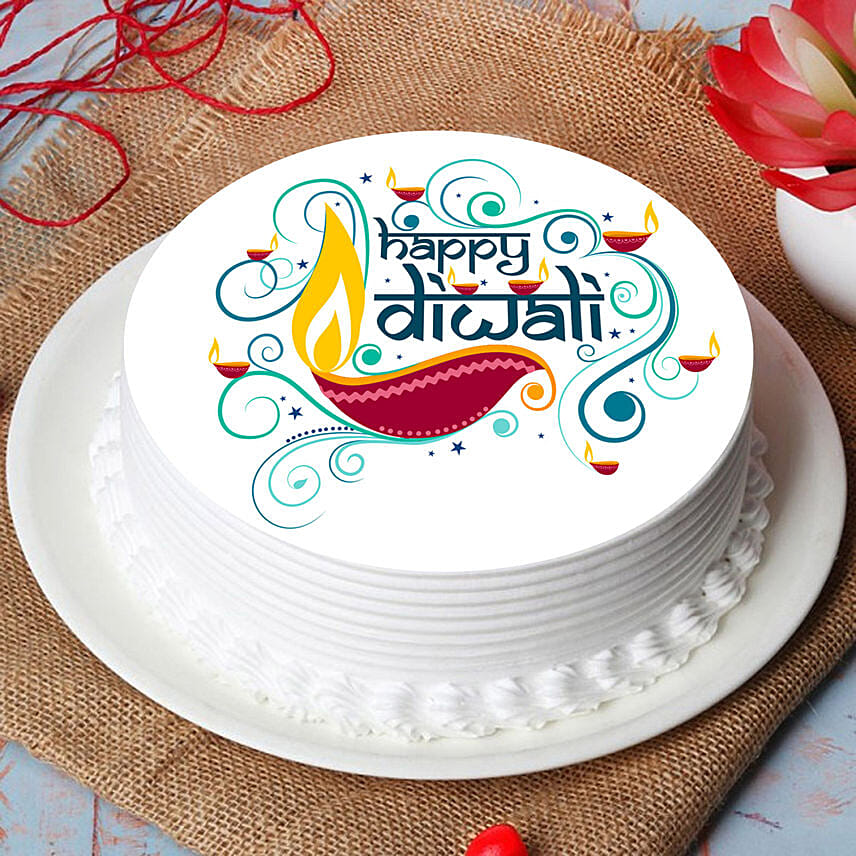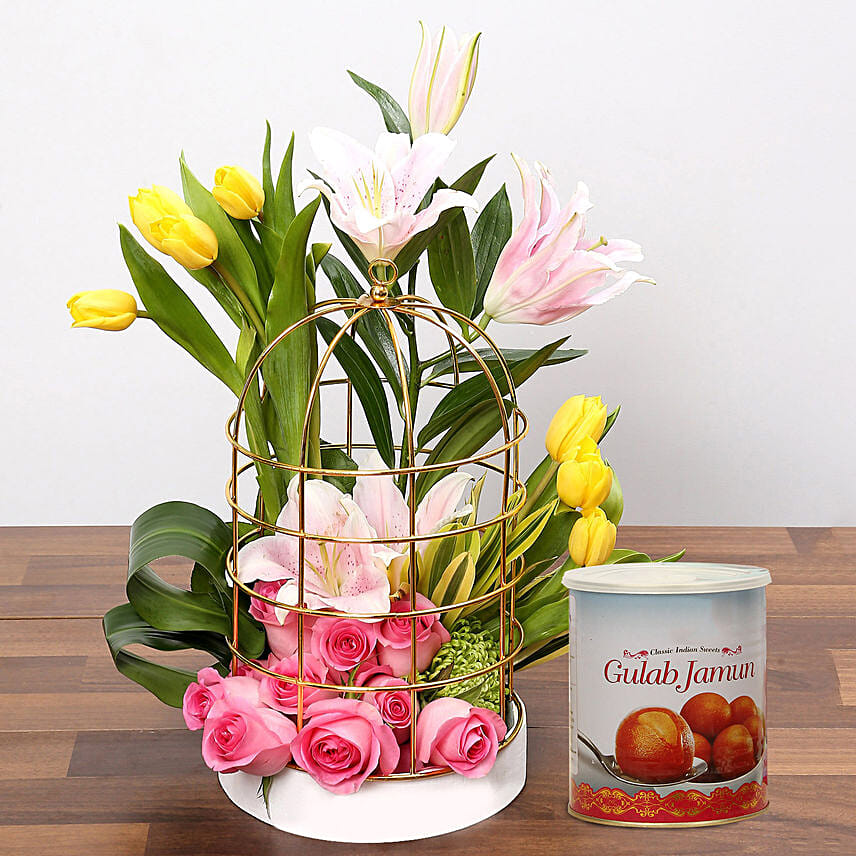How to Celebrate Diwali
Diwali Gift Ideas
The Diwali is a 5 day long festival and each day has in its store some immense amount of love and compassion. In our Common Era Calendar, Diwali is generally observed around the end of October or beginning of November. The night of Diwali is the darkest night of Autumn and that's why diyas, lamps, lanterns, electric lights, and candles are lit up so that the darkness doesn't scare us or enter our lives. Fireworks are major mode of celebration and the sky looks a beautiful one that is a signal of our happiness. Rangoli is made at home courtyard because it is believed that Goddess Lakshmi, the deity of wealth and prosperity was born on this day and visits the most beautiful home that is decorated with lovely rangoli and lights.
In short the 5 days of Diwali are narrated below:
Day 1 - Dhanteras
Mainly the Northern and Western India celebrates this day with great enthusiasm. It is believed that wealth and riches would shower on home and office and as Goddess Lakshmi the deity of wealth and prosperity likes clean and clear premises, the renovation, cleaning, and decoration is necessary. The entrance of home and office is done with colorful Rangoli. All through the night of Dhanteras, the diya or lamp is ritually kept burning in honor of Lakshmi and Dhanvantari, the goddess of health and healing.
It is also believed that on the day of Dhanteras, some major shopping of gold and silver leads to great prosperity. If not gold or silver, any household item is bought to add value to home.
Day 2 - Naraka Chaturdasi
This day is also famously called Chhoti Diwali. The demon king Narakasura was killed on this day and thus the interesting name. Andhra Pradesh, Karnataka, Tamil Nadu, Telangana, West Bengal, and Goa celebrates their main Diwali celebration on this second day. People come out in their best attires and celebrate with Diwali sweets, firecrackers, and worshipping of Gods and Goddesses.
Day 3 - Lakshmi Puja
Diyas or lamps are lit, pujas are offered, and people celebrate in their new clothes and jewelries. On the night of Diwali, Goddess Lakshmi is believed to roam all over the earth and that's why people have to keep their doors open and decorate the entrance with Rangoli and Diwali Diyas. That way Lakshmi would be attracted to come to your home and stay there showering lots of prosperity on you. Additionally, Lord Ganesha and Kubera are also worshipped in some parts and all these gods look after financial prosperity of people. After the puja is over, either people distribute Diwali gifts and sweets to near and dear ones or visit places to shower the gifts. This is then followed by a firecracker session where children find the most fun. After that a great feast is followed with friends and relatives.
Day 4: Padwa, Balipratipada:
Padwa is the day after the grand celebration of Diwali. This day is dedicated to the love, respect, and devotion in the relationship between a husband and wife. Generally, the husband has to buy nice gifts for his wife. In some culture, the newly-married daughters along with the husband are invited for lavish meals in the daughter's home. Again in some places, the brother goes to pick up the sister form her in-laws house for this important day. In some parts, this day is also celebrated in honor of Goverdhan or Lord Krishna.
Day 5: Bhai Duj, Bhaiya Dooj
The loving bond between a brother and sister is celebrated on this day just like in Raksha Bandhan. It is called Bhai Tika in Nepal and Bhai Dooj or Bhau Beej in India. The sister gets ready and then offers some puja for the well-being of her brother and then some sweet platter, food platter, and some gift baskets are showered on the brother. In return the brother, also gets nice gifts or money for their sisters.





